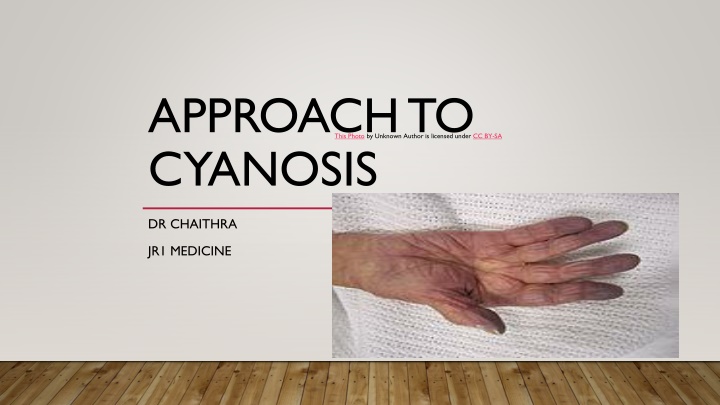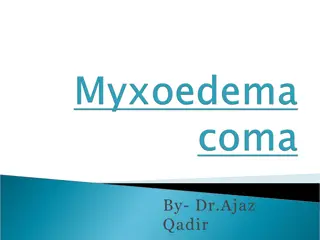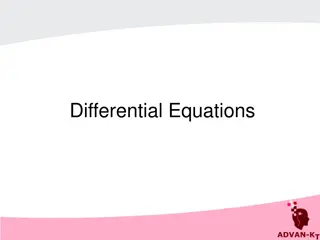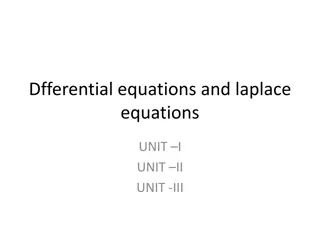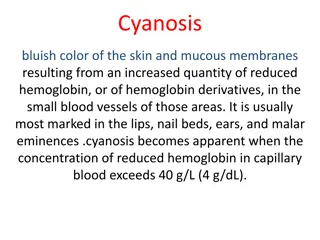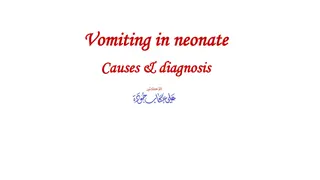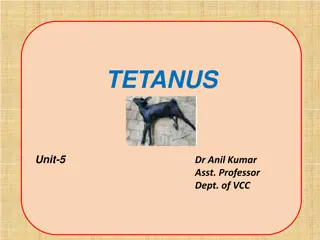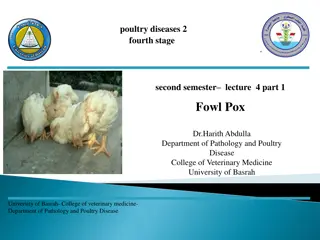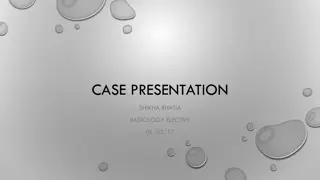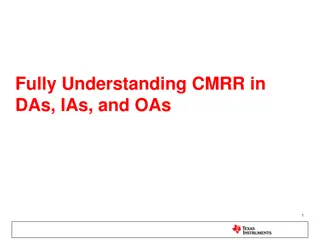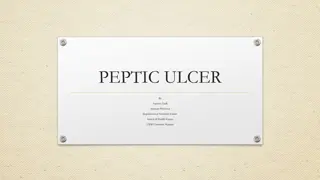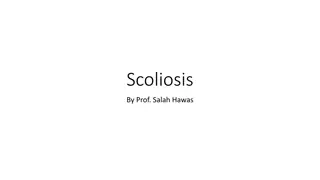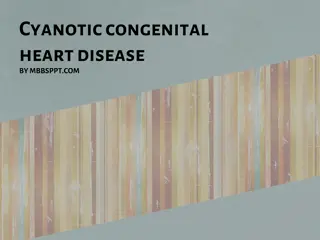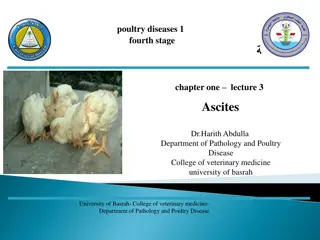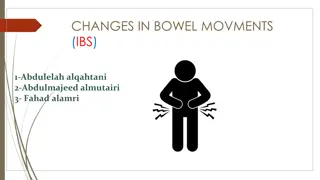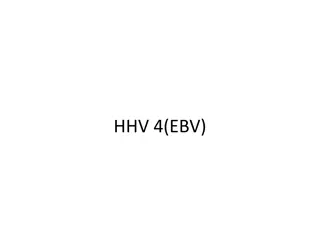Cyanosis: Causes, Symptoms, and Differential Diagnosis
Cyanosis is a bluish discoloration of the skin due to low oxygen levels in the blood. Learn about its causes, symptoms, and differential diagnosis including central and peripheral cyanosis. Explore conditions such as anemia, pulmonary diseases, and abnormal hemoglobin levels that can contribute to cyanosis. Images and detailed explanations provided in this informative content.
Download Presentation

Please find below an Image/Link to download the presentation.
The content on the website is provided AS IS for your information and personal use only. It may not be sold, licensed, or shared on other websites without obtaining consent from the author.If you encounter any issues during the download, it is possible that the publisher has removed the file from their server.
You are allowed to download the files provided on this website for personal or commercial use, subject to the condition that they are used lawfully. All files are the property of their respective owners.
The content on the website is provided AS IS for your information and personal use only. It may not be sold, licensed, or shared on other websites without obtaining consent from the author.
E N D
Presentation Transcript
APPROACH TO CYANOSIS This Photo by Unknown Author is licensed under CC BY-SA DR CHAITHRA JR1 MEDICINE
BLUISH DISCOLORATION OF SKIN AND MUCOUS MEMBRANE DUE TO INCREASED QUANTITY OF REDUCED HB OR HB DERIVATIVES IN CAPILLARY BLOODVESSELS REDUCED HB>4 gm/dl
SITES LIPS NAILBEDS EARS MALAR EMINENCE PALMS AND SOLE
CYANOSIS DEPENDS ON THE ABSOLUTE QUANTITY OF HB RATHER THAN RELATIVE PATIENTS WITH SEVERE ANEMIA MAY NOT DISPLAY CYANOSIS WITH MARKED DESATURATION MORE EVIDENT IN POLYCYTHEMIA
CENTRAL CYANOSIS DECREASED ARTERIAL O2 SATURATION/ABNORMAL HB SATURATION <85% /<75% IN DARK SKINNED INDIVIDUALS MM AND SKIN BOTH AFFECTED
DECREASED ARTERIAL O2 SAT DECREASED ATMOSPHERIC PRESSURE(PA02)--- HIGH ALTITUDE 13000 Ft IMPAIRED PULMONARY FUNCTION --PNEUMONIA / PULMONARY EDEMA/ COPD ANATOMIC SHUNTS- ---CONGENITAL HEART DISEASES ----PULMONARY AV FISTULA
ABNORMAL HEMOGLOBIN METH HB- >1.5% OF TOTAL HB HEREDITARY- AQUIRED- DRUGS, TOXINS,CHEMICAL SUBSTANCE EXPOSURE NITRATES,NITRITES,SULPHONAMIDES SULF HB SULFER BINDING WITH HB METOCLOPROMIDE,DAPSONE CARBOXY HB
PERIPHERAL CYANOSIS DUE TO SLOWING OF BLOOD FLOW AND ABNORMALLY GREAT EXTRACTION OF O2 FROM NORMALLY SATURATED BLOOD VASOCONSTRICTION DUE TO COLD EXPOSURE REDUCED CO SHOCK , HEART FAILURE REDISTRIBUTION OF BLOOD FLOW FROM EXTREMITIES ARTERIAL OBSTRUCTION- EMBOLUS/ VASOSPASM VENOUS OBSTRUCTION- THROMBOPHLEBITIS/DVT
DIFFERENTIAL CYANOSIS IN LOWER LIMB- PDA WITH PULMONARY HTN WITH RIGHT TO LEFT SHUNT IN UPPER LIMB-PDA WITH PULMONARY HTN WITH RIGHT TO LEFT SHUNT WITH TGA BOTH LL AND LEFT UL-WITH PDA OPENS PROXIMAL TO ORIGIN OF LEFT SUBCLAVIAN ARTERY OR PDA WITH REVERSAL OF SHUNT WITH PREDUCATL COARCTAION OF AORTA
HISTORY TIME OF ONSET BIRTH/ INFANCY DURATION ACUTE/ CHRONIC H/O EXPOSURE TO CHEMICALS DRUG H/O FAMILY H/O EXPOSURE TO COLD
EXAMINATION LOOK FOR SITES CENTRAL /PERIPHERAL This Photo by Unknown Author is licensed under CC BY-NC This Photo by Unknown Author is licensed under CC BY-SA
CENTRAL o RIGHT TO LEFT SHUNT OR LUNG DISORDERS o WHOLE BODY ,MOUTH ,LIPS,MM o CLUBBING,POLYCYTHEMIA- CHD, o WARM EXTREMITIES o WARMING EXTREMITIES-NO CHANGE o PA02<85 o O2 INHALATION- IMPROVEMENT
PERIPHERAL DUE TO STASIS NAIL BED, NOSE TIP,EAR LOBE, EXTREMITIES ASS WITH REYNAUDS DISEASE ,COLD EXPOSURE COLD EXTREMITIES ON WARMING EXTREMITIES IT DISAPPEARS NO IMPROVEMENT ON O2 PAO2- NORMAL
SYSTEMIC EXAMINATION LOOK FOR EVIDENCE OF PULMONARY DISEASE, PULMONARY EDEMA ,MURMERS OF CHD
INVESIGATIONS BRE,ECG,CXR V/Q SCAN PULMONARY ANGIOGRAHY ECHO DSA ,ARTERIALDOPPLER ABG SPECTROSCOPY FOR ABNORMAL HB
